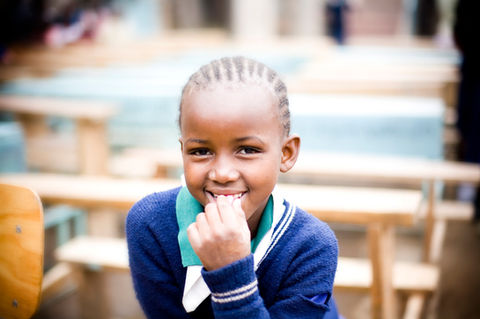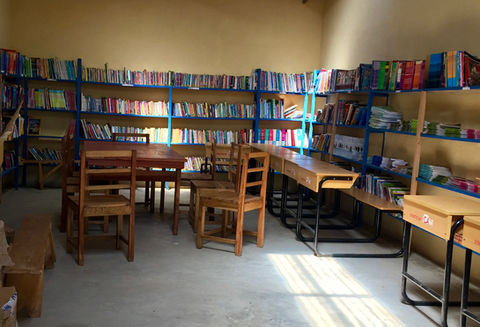Our Projects
Water Wells

In 100 villages and schools, WH has drilled and re-furbished over 390 wells providing
sustainable and clean drinking water for tens of thousands of people in the rural areas around Mangochi, Malawi. The pure water provided by the wells is fundamental to village life. It saves time for working villagers who would have to walk miles every day for clean water, giving them time to spend with their families or start a small business. Additionally, since the difficult task of getting water was often given to girls, the new wells improve school attendance and educational opportunities for them. Health-wise, clean drinking water has greatly reduced the prevalence of
diseases from contaminated water supplies. The rivers and lakes are also dangerous since villagers searching for water are sometimes attacked by crocodiles. Clean water from wells serve as a springboard for other projects in the community such as our goats project and lunch programs in the schools.
Bike Program

Many students live so far from school that walking 6 or more miles a day means they are frequently tardy, academically below standard, and have high drop-out rates. At 4 secondary schools WHF, in partnership with three Rotary chapters in Michigan and Malawi, has established a bike loan program which has provided over 300 bikes to students living 3 or more miles away from their classrooms. Teachers have been added to the program as well. Each school has a committee which manages the project. A traveling repairman fixes bikes and teaches students how to perform repairs themselves. The academic results have been very encouraging.
Girls' Health

Menstruation is a normal part of life for women. However, for many girls, the lack of menstrual supplies makes periods a struggle. Before our project, girls missed a week of school every month, and many fell behind or even dropped out. WH remedied this by providing them with thousands of reusable feminine hygiene kits at 10 schools as well as education and encouragement. This project has improved attendance, academics, and confidence for these young women. We hope to be able to expand this project to additional schools in the future.
Rural and Maternal Health

Advance knowledge that a birth could be complicated can save the lives of mothers and babies. In rural Malawi, women and girls did not have access to the ultrasound technology that can detect potential birth defects and other health conditions. Due to this lack of medical care, pregnancy is the leading cause of death among teenage girls in rural Malawi. Across rural Uganda and in 6 clinics and hospitals in Malawi, the nonprofit Imaging the World uses portable ultrasounds to detect a range of medical conditions. Results of ultrasound scans can be transmitted from rural clinics to radiologists around the world. The project also educates nurses and medical assistants to use these devices to examine and treat patients in need. In partnership
with Imaging the World, WHF is bringing the life-saving program to other clinics across Malawi.
Classroom Construction

One of Warm Hearts’ most important projects is the construction of school buildings in rural Malawian villages. Working with local villagers, parents and an experienced construction crew, WH has built 24 classrooms in 9 primary and secondary schools since 2004. Maintained by the Malawian government, the classrooms also benefit from continued support from Warm Hearts. After these schools are constructed, schools no longer have to hold “tree classes” outside on the ground. When WH helped build these schools, we also built libraries, providing a valuable resource for curious students, as well as lavatories. New school buildings and support allow some students to become entrepreneurs and start small businesses or get higher-paying jobs outside of their village. The new classrooms improve the academic atmosphere, discipline, and performance for several thousand students.
Goats "Pass On"

Rural villages in Malawi rarely have access to domestic animals. Through WH, villagers receive goats on the condition that they “pass on” the first-born females to another village family. The management of the village herd is the responsibility of the “Goat Committee.” The possession of goats serves to build the wealth of families in the village and gives them access to valuable protein in meat and milk. The manure is used as fertilizer, thus improving crop yields as well. Over 600 families have received goats and are building their own herds in 12 villages. The total
herd count is now over 1,500.
Irrigated Farming

Weather patterns, increasingly becoming more inconsistent with climate change, have led to drought in Malawi, destroying local crops and resulting in malnutrition. One solution to improve efficiency and protect against drought conditions is improved irrigation techniques. Through a series of pipes and trenches, water is pumped to each farmer’s plot. Crop yields grow, even creating a surplus that can then be sold for a profit at local markets. The revenue helps to create local businesses, especially those created by women. Beyond the irrigation system, a
combination of hybrid seeds, pesticides, and fertilizer further improves crop yields and reduces malnutrition in communities with these irrigation techniques. This WHF project currently assists over 300 families by providing food and building family capital.
Passion To Share

Passion to Share was created by Lydia Opiyo, a young woman who grew up in Warm Hearts House, the orphanage built by Warm Hearts at Kwa Watoto School in Nairobi, Kenya. Now Lydia in partnership with WHF is giving back by helping young women in the Kibera slums of Nairobi, Kenya. These women are homeless and have no marketable skills. PSF has built a Girls Skills Center which trains them to become tailors, experts in computer graphics, hairdressers, and cosmetologists. These marketable skills enable them to get jobs and build productive lives.
Uniforms, Textbooks, Desks

School construction affords more educational opportunities in rural Malawi. However, these buildings alone do not fulfill the educational needs of young minds. They need textbooks. Currently, in many schools across Malawi, a whole class of students shares the teacher’s copy. WH is working to provide new textbooks that are shared among smaller groups in secondary schools, helping hundreds of students in their studies. Another aspect of school support facilitated by WH is donating desks to schools. This standardizes the educational experience and gets students off of the ground and into a better learning environment. Classes are better disciplined and students are better prepared for the lesson. Along with other educational support systems such as uniforms and school supplies, WH works to improve educational opportunities for Malawian youth.
Daisy School

Established in 2013 by a longtime WH partner, the Daisy School in western Kenya is already known for its academic excellence. With a growing enrollment, the Daisy School is the top school in its district and sends many kids to excellent secondary schools. As a patron of the school, Warm Hearts has provided land, built classrooms and other buildings, desks, and other facilities, aiming to improve the educational outcomes of its students who go on to have successful careers. The school provides excellence to many homeless and orphaned children who would otherwise have bleak futures.
School Lunch Program

For over 20 years the Kwa Watoto School in the heart of the Soweto slums in Nairobi, Kenya has provided educations for hundreds of homeless children, orphans, and many from low-income families. Warm Hearts helped build the school and has supported it with many projects, including infrastructure, water systems, supplies, desks, and other resources. The primary support at present is the Lunch Program, which feeds a hot meal to over 800 children every day. Often it is their only meal of the day. The result has been happy and alert students and improved academics.
Libraries and Books

Reading is key to students’ development. Books open up the world, expand the possible, and facilitate boundless learning. However, many Malawian schools do not even have the simplest of libraries or even sufficient textbooks. This is one of many factors that prevent these students from continuing their education and escaping the cycle of poverty. WH has constructed 2 libraries at the secondary schools we (and our partners) have built, as well as furnishing them with shelves and desks. In addition, in these schools as well as several primary schools, we have sent over 4,000 books for students to read. Teachers report students are motivated by the presence of books and read them regularly. WHF hopes to expand this project at other schools.












